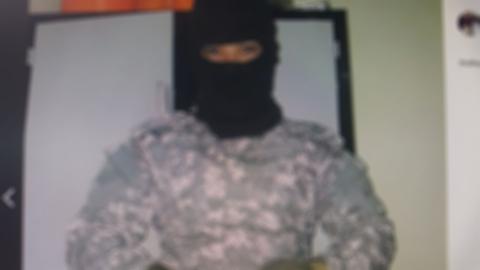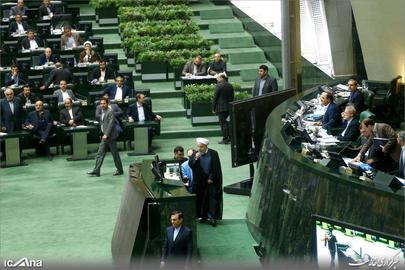A man walks down the side of Asmayee Mountain in Kabul, humming and dancing, his index finger occasionally lifted in the air and his head nodding. As Muhammad Naqi gets nearer his voice becomes clearer:
Ya Zahra, on our lips, we have gone
We, the protector of the sanctity
Shakes with the name of Fatemiyoun
The mountains of Zion
Hey, we are the lions of the battle
Hey, we are the best of the men
We did our homework with blood in Damascus
It is a love for Hussain, and what a love!
Love and passion for Bibi Zainab, the sister of Imam Hussain, pulled Mohammad Naqi to Syria. However, this love was not only restricted to Bibi Zainab or to the spiritual realm. Were Mohammad Naqi to successfully return from Syria to Iran, he would be able to confidently express his love to Mahsa. That love is an earthly love, for which he traversed a long and harsh way. Now, with the help of the money earned from the war against ISIS, he sought to finally achieve this love.
But in fact, the process through which Naqi wanted to achieve his goal was like playing with fire. Naqi had come from an Afghan family and was trying to show his Iranian lover’s family that Afghans are not idle “rubbish” – a broad perception among some Iranians – and that they are not of people who have “no stars in the sky or rugs on the earth.”
Syria was the ground to prove it.
This is the situation that the Islamic Republic of Iran has created for Afghan refugees, and the state media only inflames it. They portray Afghan refugees as people who have bad reputations and little prestige, and try to prevent Iranian people from trying to establish social relations with them.
Thus, Mohammad Naqi sought to break this taboo. He chose the path that could help him gain credit: in a war between “evil and good,” he fought alongside the “good” so that he would be able to change the view of the religious people around him and win the minds of those in Mahsa’s home.
Naqi went to register himself in Mashhad at a recruitment center for Afghan refugees to join Afghan paramilitary forces in Syria. The registration process was smooth. “All the documents I needed were an ID card, some photos, and a person to guarantee and confirm my manner and criminal background,” he said. “I had my passport too, but I did not have a permit to stay in Iran, as my visa had already expired. The registration lasted less than half an hour. They fixed a day for me to come and start training.”
The 31-year-old entered a military base to learn war tactics and engage in spiritual lessons. He enrolled into the military process and, during his stay at the base, noticed that Afghans were going to war to defend the shrine of Bibi Zainab. While he said he would not discuss specifics of his time in the military or divulge the location where it all took place, he said: “I saw a lot of our Afghans from different provinces, such as Balkh, Samangan, Ghazni, Kandahar, and Kabul — from everywhere almost — at this base. Our trainers were Afghans and Iranians who behaved very differently from others. All the men were respected. There were not any women among us.”
Born and raised in Iran, Naqi had never had any experience of using weapons. It took him two months to become familiarized with military arsenals. Physical education was another part of his daily education in order to increase his resistance during difficult days ahead in a strange country. After two months, Naqi, along with a group of Afghan fighters led by the Revolutionary Guards, flew from Tehran to Damascus to defend Bashar al-Assad’s regime. Naqi’s two-month mission started in Homs, in the west of Syria.
“This was the most difficult experience of my life,” he said. “The weather was warm and the battle was continuously going on, but I was resisting, with reliance on God and the Bibi of the two worlds. I was praying to return alive from here to fulfill my wish. The lucky thing was that I was not active in war[fare]. I was working in the logistics section. However, it did not matter because the sounds of fighting and gunshots took our breath away. Some men, who were from my province, were cooperating and looking after each other. We never left each other alone.”
Naqi’s first mission took five months – three months in Syria and two months in Iran at a military base. Within this period he had already become famous, as he had gone to fight the takfiris of ISIS. Photos showing him in military uniform and with a Kalashnikov over his shoulder were passed from hand to hand among his relatives, and had even reached Mahsa’s family.
“Mahsa’s father’s mind was changed ... about me. I gained more respect among Mahsa’s family. My brother was sending these messages to me, either in Tehran or in Syria, through Telegram. I used to try to take photos with commanders of the Revolutionary Guards near tanks and giant cars,” Naqi said.
After five months he went back to Mashhad, the city he regarded as his home. Naqi’s father organized a big ceremony, hung up banners with Naqi’s name on them, as well as some messages on the entrance door, and invited relatives for prayers. Mahsa’s father was also among the guests.
Naqi said that his successful return increased his popularity with Mahsa’s family. Eventually the proposal day came and Naqi and Mahsa were engaged.
Almost four years have passed since Naqi married. Now he is doing business between Iran and Afghanistan by exporting snacks to his home country. In the majority Sunni Afghanistan, he doesn’t narrate his life story with such pride, and he cannot bring his family to Kabul due to the levels of insecurity there. Thanks to the mission to defend the shrine of Bibi Zainab, Naqi was granted a residence permit in Iran and, soon, he and Mahsa will be expecting their first child.
visit the accountability section
In this section of Iran Wire, you can contact the officials and launch your campaign for various problems

























comments